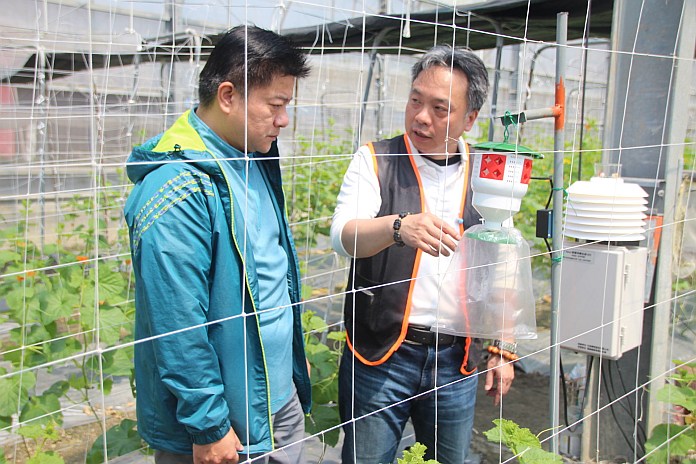TAIPEI, Taiwan – Undoubtedly, the agriculture industry will become even more important these next few decades. Yet, the global farming sector is facing ever-increasing risks as natural disasters become more frequent and disruptive as a result of climate change.
What’s more, the world’s population continues to increase, with the United Nations estimating that it will reach 9.7 billion by 2050. As a result, the agriculture sector is looking to incorporate new technologies to maximize yields and improve efficiency in order to feed the planet’s growing population. In fact, some estimates say that global agriculture production will need to rise by 69 percent between 2010 and 2050 to meet this need.
Actually, incorporating technological innovation into farming is nothing new. The Industrial Revolution, for example, brought about the cotton gin, grain elevators, chemical fertilizers, and gas-powered tractor, among many other innovations. In the late 1900s, farmers started using satellites to plan their work.
Today, the Internet of Things (IoT) is shaping the future of farming at the next level. It is clear that smart, digital, and efficient agriculture is already becoming more commonplace among farmers, with high-tech agriculture increasingly becoming the standard.
In Taiwan, which is famous not only for its technology but also for some of the most amazing fruit in the world, agriculture is increasingly becoming a lot more like manufacturing. When it comes to modern, tech-based smart farming, no other place in the world is better equipped for this change than Taiwan.
Whether it is indoors in multi-story hydroponic farms, small-sized plots of land, underground cultivation, or large-scale warehoused plantations, the use of solar power, drones, IoT, semiconductors, and software can be seen across the island.
One of the hottest teams in Taiwan to capture the interest of both the business and government sectors is Tano Security. Over the past five years, the team’s cutting-edge and down-to-earth projects have grabbed the attention of many farmers, who can see the benefits that this technology can deliver to agriculture.
“Smart, digital, IoT framings whatever you want to call it [these] are only tools, better tools to farmers. Farmers care only about result, better yields, and if a tool can help to generate better yields. And that is it,” stated Robert Chen, chief executive officer of Tano Security. Unlike many tech-based companies entering the agriculture field, the members of Chen’s team have been instructed by Chen to be farmers first in order to understand exactly what their problems are. “It is important to find out what the real needs are in order to provide help, (and) not the other way around,” Chen commented.
In April, Tano Security teamed up with Taiwan’s National Chung Hsing University to enter the finals of the World Bank’s 2020 Agriculture Risk Innovation Challenge. For years, the World Bank Agriculture Observatory has tried to generate solutions that demonstrate alternative ways of collecting or monitoring critical datasets to assess the impact of agriculture stressors.
For this innovation challenge, Tano Security proposed a solution that featured an early-warning system for the fall armyworm pest that could reduce agriculture losses by more than 90 percent and cut the use of pesticides by 50 percent. This solution originated from the company’s real-life field experience in China, and, clearly, the World Bank was impressed, with Tano Security being awarded the Top Innovator Prize in the competition.
Generally speaking, Taiwan can already be considered one of the most successful food producers in the world, despite the many challenges it faces, including soil erosion, typhoons, and heavy flooding. “As a matter of fact, Taiwanese farmers learn and grow from these challenges,” Chen has said.
This combination of technological know-how, electrical-engineering skills, and extensive manufacturing capabilities along with the natural pride of the nation’s farmers in producing high-quality fruits and vegetables could make Taiwan a very strong ally in the world’s biggest (and perhaps most important) industry—agriculture.





